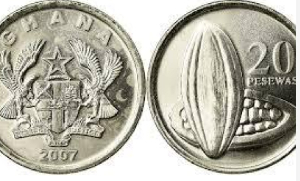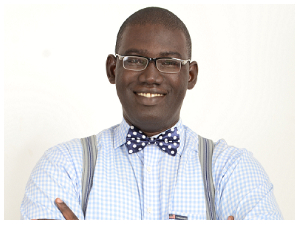The title may sound controversial unless you have read the whole article:
It was a busy day like any other day of my internship program schedule at the dieteraphy unit of the La general hospital. I was assisting the head nutritionist in dietary counselling of a patient who was from consultancy with the doctor and had been newly diagnosed of diabetes.
She (the patient) looked desperate and said many times that she couldn’t believe the diagnosis to be true and suspected it to be a spiritual ailment her evil family members had enchanted upon her life.
She simply didn’t understand why she could become diabetic overnight. According to her, she was someone who doesn’t eat sugar at all. She explained further that for many years, she had been avoiding eating sugary foods and never added table sugar (sucrose) to her breakfast meals. You could guess from her explanation that she was a saccharophobian (one who fears sugar) and found it mystic to be diagnosed of one in the long run.
All that she knew was that the cause of diabetes is eating sugar hence it seemed ironical that after years of strictly avoiding sugar intake, she goes to the hospital for her yearly check-up and is caught in the web of diabetes.
The head nutritionist calmed the patient down, paused with a broad smile and then tried to explain to her the cause of her sudden diabetes development and how she can manage it (if not cured of it). During the counselling session, it was emphatically made known to her that just eating sugar isn’t the cause of diabetes. She looked surprised to hear such statement for the first time. The nutritionist noticed the confusion on her face and clarified that it was rather eating EXCESS sugar regularly that causes diabetes.
The patient was now sober, listening carefully to the counsel of the nutritionist. The nutritionist added that so far as a person eats sugar in moderation, there was no cause for alarm in getting diabetes.
The patient wasn’t satisfied with the explanation because her case was different: she had not been taking in table sugar at all so what the nutritionist was saying wasn’t relevant information to her. ” If I had diabetes without taking in sugar at all, wouldn’t it have been worse if I consumed sugar in moderation or whatever?”, she must have thought.
As an intern, it was my job to check the antropometric measurements of patients so before the nutritionist continued with her counselling, she made me do that for our desperate patient who was now livid with rage. Right from the time she entered the nutrition unit office and started complaining about the diagnosis to be unbelievable, I already knew why contrary to her assertion, the diagnosis was credulously true!
For a short woman whose weight was over 75 in her mid-thirties with a short height, BMI in the obesity range and low metabolic rate, she was susceptible to getting diabetes even if she avoided eating table sugar and took large quantity of carbohydrate foods.
I handed the details of the measurement to the nutritionist. She looked at it sternly and smiled. “Ahaaa! This must be why”, the nutritionist said suggestively to the patient. When asked what she normally ate, the patient revealed that she liked to eat porridge (hausa koko) without table sugar added and bread in the morning; rice in the afternoon and banku, fufu or kenkey in the evening which validated our (the nutritionist and I) suspicion of the cause of her ailment.
She admitted that she ate heavy meals in the later hours of the day and slept righy away. She also confessed that she liked eating a lot and in large quantities too. She could eat three balls of kenkey and in less than half-hour’s time, she ate fried yam. She was asked if she liked eating vegetables and be obviously didn’t answer in the affirmative. She joked that salad is for weaklings.
It wasn’t funny so I wondered why she laughed at her own joke and her countenance had suddenly changed with a change of topic to her delicacies. We were confused to learn that someone who claimed to be saccharophobian frequently drunk coca cola. When I asked her if she knew 250ml coca cola can contained 26.5g, thus about 6 teaspoons of added sugar, she answered sharply, ” Yh! I know there’s some sugar in it since it is sweet.
Since I know sugar isn’t good, I dilute coke and other soft drinks with water before drinking. This reduces the amount of sug…” She barely finished talking when my madam cut in, ” It is clear that you are misinformed about the whole diabetes thing. Adding water to soft drinks won’t take the sugar in the drink away.
It only makes the sugar concentration low so that it doesn’t taste so sugary. If a 100ml drink contains say, 10grams of sugar, even adding extra 100 ml water won’t reduce the total amount of sugar in the drink at all…! There will still be 10gram of sugar in the diluted drink (now 200ml) which will only taste less sugary due to a change in sugar concentration from 0.1% to 0.05%. That is it… so I’m very shocked about what you are saying and I don’t know where you learnt that concept from…”
I don’t need to exaggerate to you how quiet the once worrisome patient was now. The nutritionist took advantage of her quite mood and explained very simply to her that with such a dietary pattern, it is not strange that she had diabetes in the long run. It was a pity that the patient had misinformed knowledge of diabetes and tried to avoid it in the wrong way. Her counselling had kept long and there were other patients to attend to so the nutritionist rounded her long talk up by telling her how to manage her type II diabetic condition.
She first needed to accept the condition, eat less refined foods, avoid adding sugar to her diet as she already had been doing, eat vegetables (especially onion), high fiber/ roughage containing foods and not take in soft drinks. She was advised to drink corn porridge (without seiving the fibre out from the corn dough) in place of the ‘Hausa koko’ which was more refined. She asked if she could eat fruits and was advised to take in the fruits with lots of roughage.
The patient who furiously entered the nutrition unit now left pitifully because she had come to accept that her case wasn’t mere diabetes but diabesity. The nutritionist looked at her as she left and gave a deep sigh.
The message is clear! Eating sugar isn’t the cause of diabetes mellitus but it is the excess of it’s intake. Sugar is good as far as glycolysis is in concern for metabolic energy utilization and generation. Diabetes sets in when the sugar intake is high where as the insulin (the hormone responsible for regulating the blood sugar level) concentration or activity is low. The types of diabetes will be explained another time.
We must try as much as we can to avoid the habit of eating refined foods. Whether our table sugar is the brown sugar type or not, it must be taken in moderation. Too much everything is definitely bad! If you choose to avoid table sugar intake, it is a plus. However make sure you don’t take foods that will contribute to a high blood sugar level after all.
All carbohydrate foods are broken down into monosaccharides (simple sugars) upon complete digestion hence it is equational to taking in table sugar (sucrose) in the long run. This is why it is recommended that we consume carbohydrate foods with lots of vegetables. You don’t need to a sacharrophobian to avoid diabetes. All you need is a balanced dietary pattern which ensures a daily recommended sugar intake of 37.5g for men and 25g for women (According to American Heart Association).
Our wrong perceptions of situations is mostly the cause of our plight but we do realize this truth only when it is too late!
Opinions of Thursday, 28 July 2016
Columnist: Aheto Francis
Eating sugar doesn’t cause diabetes!
 Sugar
Sugar














